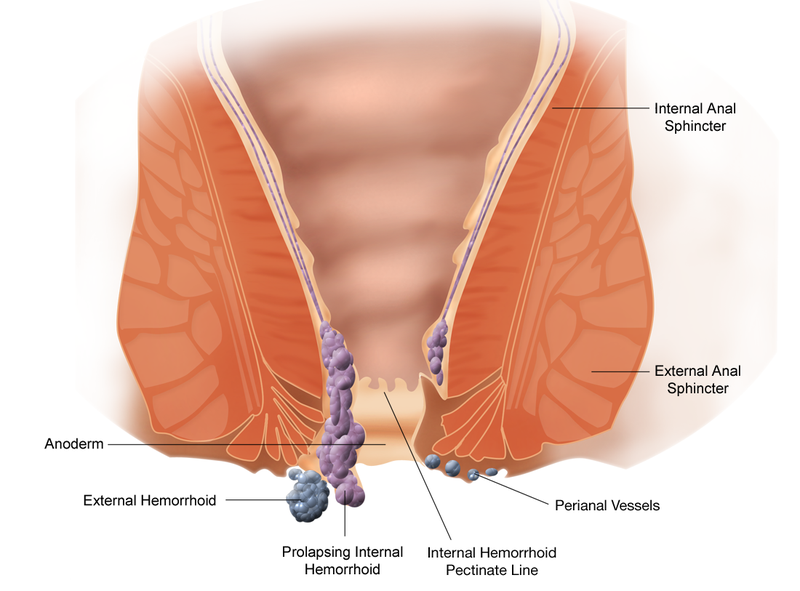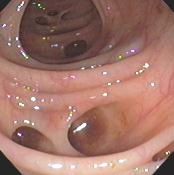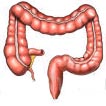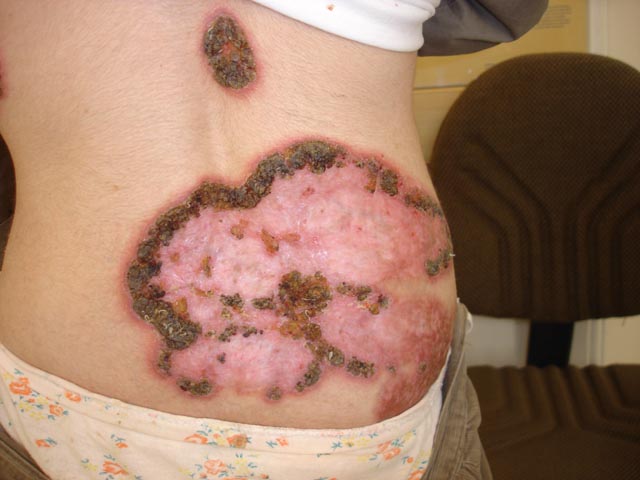

Crohn's Disease and Ulcerative Colitis
Copyright 2009-2014 Saviz Inc. All rights reserved.
What is crohn's disease?
Crohn's disease is a chronic inflammatory process primarily involving the intestinal tract. Although it may involve any part of the digestive tract from the mouth to the anus ,it most commonly affects the last part of the small intestine(ileum) and /or the large intestine(colon and rectum).
Crohn's disease is a chronic condition and may recur at various times over a lifetime. Some people have long periods of remission, sometimes for years, when they are free of symptoms. there is no way to predict when a remission may occur or when symptoms will return .
What causes Crohn's disease?
The exact cause is not known . However ,current theories center on an immunologic
(The body's defense system) and/or bacterial cause. Crohn's disease is not contagious ,but it does have a slight genetic (inherited) tendency .An X-ray study of the small intestine may be used to diagnose Crohn's disease.
How is Crohn's disease treated?
Initial treatment is almost always with medication .There is no "cure" for Crohn's disease ,but medical therapy with one or more drugs provides a means to treat early Crohn's disease and relieve its symptoms .The most common drugs prescribed are corticosteroids ,such as prednisone and methylprednisolone and various anti- inflammatory agents.
Other drugs occasionally used include 6 - mercaptopurine and azathioprine, which are immunosuppressive. Metronidazole, an antibiotic with immune system effects ,is frequently helpful in patients with anal disease.
In more advanced or complicated cases of Crohn's disease, surgery may be
Recommended . Emergency surgery is sometimes necessary when complications ,such :
Who does it affect?
Any age group may be affected ,but the majority of patients are young adults between 16 and 40 years old. Crohn's disease occurs most commonly in people living in northern climates. It affects men and women equally and appears to be common in some families. About 20 percent of people with Crohn's disease have a relative ,most often a brother or sister ,and sometimes a parent or child ,with some form of inflammatory bowel disease.
Crohn's disease and a similar condition called ulcerative colitis are often grouped together as inflammatory bowel disease .The two diseases afflict an estimated two million individuals in the U.S.
What are the Symptoms of Crohn's disease?
Because Crohn's disease can affect any part of the intestine, symptoms may vary greatly from patient to patient. Common symptoms include cramping ,abdominal pain,diarrhea ,fever, weight loss, and bloating.Not all patients experience all of these symptoms ,and some may experience none of them .Other symptoms, may include anal pain or drainage, skin lesions, rectal abscess ,fissure ,and joint pain (arthritis).
Shouldn't surgery for Cohn's disease be avoided at all costs?
While it is true that medical treatment is preferred as the initial form of therapy ,it is important to realize that surgery is eventually required in up to three-fourths of all patients with Crohn's .Many patients have suffered unnecessarily due to a mistaken belief that it inevitably leads to complications.
Surgery is not "curative ,"although many patients never require additional operations. A conservative approach is frequently taken, with a limited resection of intestine (removal of the diseased portion of the bowel) being the most common procedure.
Surgery often provides effective long - term relief of symptoms and frequently limits or eliminates the need for ongoing use of prescribed medications. Surgical therapy is best conducted by a physician skilled and experienced in the management of Crohn's disease.
"Surgery often
Provides effective long - term relief of symptoms and frequently limits or eliminates the need for ongoing use of prescribed medications."
As a perforation of the intestine ,obstruction(blockage)of the bowel ,or significant bleeding occur with Crohn's disease .Other less urgent indications for surgery may include abscess formation, fistulas(abnormal communications from the intestine),severe anal disease or persistence of the disease despite appropriate drug treatment.
Not all patients with these or other complications require surgery. This decision is best reached through consultation with your gastroenterologist and your colon and rectal surgeon.
Surgery in Crohn's Disease :
When does surgeries become necessary in Crohn's disease?
Because two-thirds to three-quarters of patients with Crohn's disease will need surgery at some time during their lives, it is important to understand why an operation might the indicated. Some operations are required for serious complications, other are performed for elective indications. Complications requiring urgent surgery include excessive bleeding, perforation of the bowel, intestinal obstruction, abscess formation, or toxic megacolon (dilatation and loss of muscle tone in the colon).If one of these complications occurs, a decision to operate must be made quickly.
Elective Surgery in Crohn's disease may be indicated because medical treatments have failed to control symptoms such as pain ,weight loose ,fever ,or extreme fatigue ,or because the side effects of these treatments may be intolerable. In consideration of elective surgery it is essential to consult your gastroenterologist and surgeon about whether surgery at this time will change the course of your disease, which operations are available to you ,and what you can expect after surgery .Surgery is part of the continuum of care in patients with Crohn's disease. It is not a cure for the disease .It can alleviate the complications of the disease. The goal of surgery is to conserver bowel and return the patient to the best possible quality of life .When a patient with Crohn's disease is going to have surgery ,it is important that the physicians involved be aware of the various medications that the person is taking .The care of the patient is a team effort including the surgeon , anesthesiologist ,and the primary treating physician .For example, the patient taking steroids must continue to receive them intravenously during the perioperative period. The surgeon and the gastroenterologist,must determine who will monitor the tapering of the steroids postoperatively.
Are there newer surgical techniques for Crohn's Disease?
The use of microinvasive or laparoscopic surgery has recently been advocated because of less postoperative pain, shorter hospital stays, and less scarring. This type of microinvasive surgery in Crohn's Disease has been utilized for both elective and urgent operation. Not recommended for emergency surgery, it is still a new technique that requires further evaluation .
What are the chances that Crohn's Disease will recur after surgery?
In adults, recurrence of symptomatic Crohn's Disease with pain ,fever, weight loss, diarrhea is 20 percent at two years after surgical resection,30 percent at three years, and approximately 50 percent at five years when the disease recurs, it is usually at five years. When the disease recurs, it is usually at the site of the anastomosis or ileostomy .it is important to remember that each person with Crohn's Disease is different .Theses are only statistics and should not be interpreted as prediction of recurrence.The use of newer medication such as the 5-ASA agents and the immunomodulators may possibly reduce the likelihood of recurrence. Also ,recurrence rate varies with the original resection site. After proctocolectomy with ileostomy ,this rate is less than 20 percent. There are limited data about recurrence rate in children.
If there is a recurrence, will I need a second or third operation?
Most recurrent Crohn's disease responds favorably to medical treatment, In fact only 40 to 50 percent of those with recurrent symptoms after their first operation will need a second operation. Those that need a third operation range from 10 to 30 percent .
Surgery is not the end of the line but is a part of the continuing care of a patient .The combination of medical and surgical therapy is designed to offer a better and productive quality of life to patients with the illness.
What are the most commonly performed operation for Crohn's disease?
The objective of a surgical procedure in Crohn's disease is to remove the portion or segment of diseased intestine that is causing symptoms or, if it is a smaller segment with a stricture ( a narrowed area ) ,to perform a strictureplasty . Surgical removal of a diseased portion of intestine is called a resection; rejoining together the remaining ends of the bowel to restore intestinal continuity is called anastomsis.
This type of surgery dose not result in an ostomy .The various names for surgical resections depended on which part of the intestine is removed and then anastomosed together. For example ,when a portion of the ileum (small intestine) is removed along with the cecum (apportion of the large intestine),the procedure is called an ileocolic resection with ileoascending colon anastomosis(referring to the parts of the small and large intestine that are joined together).When all of the colon is removed for Crohn's colitis and the ileum is joined to the nondiseased rectum, the procedure is called a total abdominal colectomy with ileorectal anastomosis.
When the small intestine is involved with Crohn's disease, it may have areas of diseased bowel interposed with areas of normal bowel. These "skip" areas are a classic sign of Crohn's disease. The areas with active disease may narrow and ultimately not permit the passage of the intestinal contents. The normal bowel compensates by pushing against this "strictured area,"causing the terrible crampy pain associated with an intestinal obstruction .It is inadvisable to remove long segments of small intestine because of the severe nutritional deficiencies that can occur. Therefore, in order to conserve the intestine and improve the quality of life for patients with this form of Crohn's disease, stricurtureplasty has evolved. This procedure widens the strictured area without removing any segments of the small intestine by opening the small bowel along the area of the stricture and then closing the incision transversely. There have been many reported cases of dilating the stricture with a balloon catheter, but the effect of this method may be only temporary .The use of strictureplasty in colonic Crohn's disease is not advised at this time.
The use of conservative surgery in colonic Crohn's disease may be an alternative approach, however. Limited colonic resection can improve a patient's lifestyle without an ostomy. This type of resection has a high recurrence rate but is still a good option to consider .
In approximately 15 percent of patients with Crohn's disease only the colon is involved. Removal of the colon and rectum (proctocolectomy) with an ileostomy is performed in some patients. When the rectum and anus are diseased with fistulas and abscesses, the anal sphincter can be damaged causing incontinence. Some patients have endured repeated frustrations from the failure of medical and localized surgical therapies and would rather live with an ileostomy. Ostomates(patients with ostomies)can have very active and normal lives.
What is the role of nutrition in the surgical patient with Crohn's disease?
Nutrition plays an important role. The inflammation associated with Crohn's disease can cause diarrhea and malabsorption .If proper nutrition is not provided, significant weight loss and malnutrition may result .It is very important to bolster the patient's nutritional status prior to elective surgery. Among the benefits of this strategy is an improvement in the immune status of the patient, which lessens the likelihood of complications such as infection and even lessens the time to recovery .while in an emergency situation the restoration of nutrition may not be possible, proper nutrition can be provided prior to an elective operation such as for a partial intestinal obstruction that is still causing discomfort. Nutrition can frequently be provided as an elemental formula taken orally or, If need be, by total parenteral nutrition ,which provides total bowel rest .Medication to reduce the inflammation of Crohn's disease may also be helpful prior to surgery, including steroids ,metronidazol ,6-mercaptopurine or one of the other immunosuppressive agents, or one of the 5-aminosalicylic acid medications.
What is the most commonly performed operation for Ulcerative Colitis?
The most recommended procedure is proctocolectomy (removal of the colon and rectum),which includes salvaging the anal muscles with construction of a neorectom (new rectum ) out of a portion of the small bowel (making a reservoir or pouch),attaching the pouch to the anus, and constructing a temporary loop ilestomy. The loop ileostomy is then closed six to eight weeks later. The more common name for this operation is the ileoanal pouch anastomosis. This operation has replaced the classic proctocolectomy and permanent ileostomy as the operation of choice .It can be performed in patients of all ages from five to seventy .Every case is different ,and the patients,wishes and desires must be appreciated and considered.
The operation is usually performed in two stages, the second being less traumatic than the first. The first is removal of the colon and rectum to the level of the anal muscles. The ileum (the very end of the small bowel) is then fashioned into a reservoir ( using about twenty centimeters of bowel),pulled down to the anus, and anastomosed to it will either sutures or surgical staples. The pouch is allowed to heal by constructing a temporary loop ileostomy in order to prevent stool from passing to the healing pouch .Then ,at the second stage of surgery six to eight weeks later, the ileostomy is closed thus restoring gastrointestinal continuity and allowing the patient can have this operation done in one stage, but they must be highly selected individuals.
After the operations, patients average six bowel movement per day .The consistency of the stool varies but is mostly soft, almost "putty-kike."As with any operation ,there are short-them and long -term complications. The two most common longterm complications are small bowel obstruction and pouchitis (a nonspecific inflammation of the pouch ).The bowel obstruction causes crampy abdominal pain with nausea and vomiting. This is managed with bowel rest and intravenous fluids in approximately two - thirds of the patients. But the remaining patients require surgery to release the bowel from the source of obstruction (an adhesion) . The obstruction is usually scart issue that forms in the abdominal cavity after any type of surgery .
Pouchitis was originally described in cases featuring the condition that occurs in 30 percent of pouch patients , pouchitis causes mild or sever symptoms and may be acute or chronic. It can cause diarrhea and crampy abdominal pain with increased frequency of stool, and also systemic effects including fever, dehydration ,and arthralgias (joint pain) .It can be managed with an antibiotic, metronidazole (Flagyl R)or ciprofloxacin (Cipro R), for three to six weeks. In a small percentage of patients, however,poucitis becomes chronic and requires long-term antibiotics.
The incidence of pouch failure is approximately 8 to 10 percent, Failure requires removal of the pouch and conversion to a permanent ileostomy .Although the ileonal pouch anastomosis is the most commonly recommended type of surgery, it should be performed by surgeons who have experience with the procedure and the aftercare of the patient.
When dose surgery become necessary in ulcerative colitis?
Over the past decade, Surgery in Ulcerative Colitis has evolved to a degree that offers a patient several alternative to achieve both a better quality of life and a cure for his or her disease. Approximately 25 to 40 percent of patients with Ulcerative Colitis will require surgery at some time during their illness.
Emergency indications for surgery include perforation of the colon, massive colonic bleeding ,fulminant (sudden sever) Ulcerative Colitis, and toxic megacolon. Any of these conditions require a prompt decision and prompt intervention .The type of surgical procedure will vary with the condition of the patient and also the experience of the surgeon performing the procedure. We will discuss the types of surgical procedures later on.
Elective indications for surgery in patients with Ulcerative Colitis include chronic sever symptoms ,failure of medical therapy, and a high risk of developing colon cancer. Because of the latter risk, colonoscopy is recommended in patients with longstanding disease. During the colonoscopy, random biopsies of the colon are taken. Biopsies are examined under the microscope for the presence of dysplasia.
Patient with high-grade dysplasia should undergo removal of the colon and rectum with construction of an ileoanal pouch anastomosis or an ileostomy .Some patients with low -grade dysplasia should also undergo colectomy or more frequent screening.
The risk of developing cancer begins to increase after ten years of disease. For this reason children, whose disease began in early childhood, do not need surveillance until adolescence. Colon cancer is extremely rare in the pediatric population.
Any patient being evaluated for surgery for ulcerative colitis should inform the involved physicians(including the anesthesiologist)of the medications that he or she is receiving. The surgeon and the gastroenterologist should decide prior to surgery how steroids will be managed.
How abscesses and fistulas are surgically treated?
Approximately 25 percent of adult patients with Crohn's disease have fistulas or abscesses. They are less common in children .This complication is caused by a perforation of the bowel forming a collection of pus, intestinal bacteria, and fluids. If this collection forms a channel or a track to another loop of bowel or organ (for example, the bladder, vagina or skin),it is called a fistula. This complication is caused by a perforation of the bowel forming a collection of pus ,intestinal bacteria, and fluids. If this collection forms a channel or a track to another loop of bowel or organ (for example, the bladder, vagina or skin),it is called a fistula. This complication can occur in the abdomen, the pelvis, or the soft tissue surrounding the anorectum .If an abscess perforates into the abdominal cavity, the infection spreads rapidly causing sever pain, fever, shock ,and generalized sepsis(bacteria in the blood).This becomes a surgical emergency ,and an immediate abdominal exploration must be performed in order to drain the abscess and wash out the abdominal cavity. A bowel resection and a temporary ostomy may also be required. If the abscess is confined or Walled off, the infection spreads more slowly causing intermittent fevers and chills, generalized weakness,or localized abdominal tenderness.This type of abscess can be drained by a long needle through the skin with direct guidance of a CT- Scanner, a procedure that will temporarily control the infection and allow a more elective surgical intervention involving bowel resection without need of a temporary ostomy.
Abscesses and fistulas involving the anorectum must be treated surgically with a great deal of care in order to prevent damage to the anal sphincter .If the sphincter is damaged, anal incontinence may occur .Some abscesses and fistulas may be treated medically with antibiotics and immunomodulators.
Surgery in Ulcerative Colitis
It would be wonderful if all young people could enjoy consistently good health and smooth adjustment during their elementary and high school years. Crohn's disease and Ulcerative Colitis are chronic intestinal illnesses that can make it difficult for affected children to enjoy, and thrive in, the school experience .The good that comes from the support and encouragement of teachers who understand Crohn's disease and Ulcerative Colitis cannot be overstated. It is in this spirit that this brochure has been prepared.
What is life with an ileostomy like?
Before a person has an ileostomy (permanent or temporary) ,the surgeon and the enterostomal therapist should speak with him about the ileostomy, its location ,and the person's lifestyle. The patients should be given an opportunity to speak to people who already have an ileostomy to have a complete understanding of its implications on lifestyle. The usual site for an ileostomy is the right lower abdomen just below the belt line to the right of the umbilicus. This allows for easy care and access and placement of the ostomy appliance(pouch)so that there is minima interference with normal lifestyle.
An individual can live a long, active, and productive life with an ileostomy.The psychological implications of a change in body image can be a problem.
Support from family, the enterostomal therapist,and support groups is important .The local chapter of the Crohn's & Colitis Foundation of America has access to excellent support groups and should be consulted.
Is nutrition important in the surgical patient with Ulcerative Colitis?
Unlike Crohn's disease in which patients can have severe protein and calorie malnutrition, Ulcerative Colitis, with the exception of very severe cases, usually does not present as a disease of severe malnutrition.
Nutrition is extremely important, however, in those patients about to undergo surgical therapy for Ulcerative Colitis. The patient must go into the operation well nourished, unless it is an emergency situation .This may be accomplished by oral supplements before the operation. Some patients may require intravenous feeding consisting of total parenteral nutrition (TPN).
What is proctocolectomy and ileostomy?
Proctocolectomy and ileostomy was the "gold standard" for the surgical treatment and cure of ulcerative colitis until the advent of the ileoanal pouch anastomosis operation,widly used and recommended for som patients with ulcerative colitis.The procedure involves removal of the entire colon and rectum with construction of a permanent ileostomy ( the end of the small bowel is brought through the abdominal wall allowing the drainage of intestinal waste) .It is usually performed in one stage but can be performed in two, depending on the experience of the surgeon and the condition of the patient. If at the time of a total abdominal colectomy with ileostomy the rectum is left in place, a second operation would be required to convert the patient to an ileoanal pouch anastomosis or to remove the remaining rectum and leave the patient with a permanent ileostomy .The indications for proctocolectomy and ileostomy are the same as for the ileoanal pouch anastomosis. The complication rate is lower, but the patient is left with a permanent ileostomy.
What other types of surgical procedures can be performed?
Theough there are other surgical procedures for ulcerative colitis, they are seldom performed today .In rare instances the entire colon can be removed and the small bowel anastomsed to the remaining rectum in patients with " rectal sparing disease", but these patientsprobably have Crohn's disease not ulcerative colitis. The functional results of attaching the ileum to the rectum of patients with ulcerative colitis is not very good .The use of the continent ileostomy (the Kock Pouch) ,which was an operation with some promise befor the illeoanal pouch anastomosis ,is not a good primary operation for patients with ulcerative coltis.The clinical studies on the continent ileostomy are conflicting .The operation may be an alternative approach to patients who already have an established ileostomy, but it is a highly technical operation and the surgeon must have a large experience with the technique to decrease the high reoperation rate and overall failure rate of the procedure. Limited colonic resection in patients with ulcerative colitis is not recommended because of the high recurrence rate .
What is crohn's disease?
Crohn's disease is a chronic inflammatory process primarily involving the intestinal tract . Although it may involve any part of the digestive tract from the mouth to the anus , it most commonly affects the last part of the small intestine (ileum) and /or the large intestine(colon and rectum).
Crohn's disease is a chronic condition and may recur at various times over a lifetime. Some people have long periods of remission, sometimes for years, when they are free of symptoms. there is no way to predict when a remission may occur or when symptoms will return .
Which operation should a patient choose?
When people are confronted with the need for surgery, all available resources must be utilized to allow the person to make the correct decision .With support from the surgeon and gastroenterologist, a beneficial operation can be planned .The individual should speak to people who have already undergone an operation .Once a patient has compete information on each operation , an appropriate decision can be reached as to which operation will result in the best quality of life .
What is the role of laparascopic surgery in ulcerative colitis?
The two main operation for ulcerative colitis,the ileonal pouch anastomosis and the proctocoecto my with permanent ileostomy can be performed through laparoscopic ( microinvasive ) techoniquse.The short - and long - term complications should be the same as for the open technique.The use of laparoscopic colon resectionin the presence of cancer is not recommended. This is a newer surgical approach and should be performed by surgeons who are experienced with it . The operation may take longer , but less postoperative pain and shortened overall recovery time are its main advantages.
Understanding Crohn's Disease and Ulcerative Colitis
Facts about the Diseases
Crohn's disease is a condition in which the walls of a portion of the gastrointestinal tract have become irritated, inflamed, and swollen. The lower portion of the small intestine, termed the ileum, and the large intestine (the colon) are most often affected. Crohn's disease is referred to as ileitis when the ileum is affected, colitis when the colon is involved ,and ileocolitis when both regions are diseased. Occasionally, other part of the gastrointestinal tract such as the stomach are involved.
Ulcerative Colitis causes inflammation exclusively in the large intestine; other regions of the gastrointestinal tract are generally not involved. In both conditions, abdominal pain and diarrhea, with or without bleeding, are the most common symptoms. The cramps can be severe and are likely to be exacerbated when there is a need to use the toilet .This urgency may be so great as to result in incontinence (accidental stooling ) if there is any delay in reaching toilet facilities. Occasionally, some young people with inflammatory bowel disease experience pain coming from outside of the intestinal tract proper, for example ,the knee and ankle joints.
Because of the similarity between Crohn's disease and Ulcerative Colitis, the term inflammatory bowel disease (IBD, for short) has been used in reference to both diseases.
Crohn's disease and Ulcerative Colitis may occur in children of any age, but are especially common in children over the age of ten .Males and females are affected equally. It is emphasized that this disease should not be confused with "spastic colon" or "irritable bowel syndrome", far less serious and unrelated conditions.
Crohn's disease and Ulcerative Colitis are not caused by emotional stress or diet. Symptoms of the diseases tend to worsen or "flare up" in an unpredictable fashion, often following viral infections. Conversely ,symptoms of these diseases tend to remit in an equally unpredictable way for varying lengths of time. It is especially during the flare-ups, however, that the support of teachers, as well as family and friends, is so important in helping the affected student to cope.
Crohn's disease and Ulcerative Colitis are lifelong illnesses. Although surgical removal of the entire colon may be curative, it is often not the end of the child's problems. Medications can alleviate inflammation and discomfort but are not, in and of themselves, cures for the diseases. In addition, medications may be associated with unpleasant side effects. Crohn's disease and Ulcerative Colitis are not contagious.
Researchers believe that the diseases may be caused by an overactive immune system. This is in sharp contrast with some intestinal disorders that are caused by an underactive or deficient immune system.
From the Perspective of the Child
Leaving the classroom
"sometimes, when I have to leave the classroom, teachers give me a hard time and I have to explain in front of everybody"
Young people with these illnesses tell that their need to use the toilet frequently and unpredictably. Attacks of pain and diarrhea often occur suddenly and with no warning what so ever. Children with Crohn's disease and Ulcerative Colitis must be able to leave the classroom quickly while attracting minimal attention.
Questions about the need to use the toilet in front of classmates will only cause further embarrassment and shame. This short delay may cause a humiliating stooling accident. Actually, when treated like adults, most young person's will respond maturely and will not abuse the privilege of leaving the classroom. In some schools, bathrooms are locked for long periods for security reasons, similarly, in some schools, toilet stalls may not have doors. Any accommodation a school can provide that reduces the anxiety associated with the need to find a toilet quickly will be of incalculable benefit.
Providing a private bathroom in the nurse's or faculty's area is ofthen beneficial.
Coping
"The hardest thing for me to deal with is the fact that I am different from everybody else. Deep down, I don't want to be different ."
Young Crohn's disease and Ulcerative Colitis must cope with attacks of abdominal pain and diarrhea. They may be unable to eat, because eating elicits even more diarrhea and pain. poor dietary intake often slows growth , which may make affected students look younger and smaller than their class mates. These problems often cause them to withdraw and become depressed or angry, especially during the preadolescent or adolescent years.
Treatment can cause problems, too, cortisone - type drugs such as prednisone are effective in controlling ,but not curing ,inflammation caused by Crohn's disease and Ulcerative Colitis.
These drugs, however ,typically cause people to gain weight, to develop a rounded , puffy
Appearance (moon face),to have worsening of acne, and to become moody and restless. This change in appearance may isolate children and teenagers from their classmates who may not be aware of the illness and who may ridicule them .To minimize the disfiguring effects of cortisone-type drugs, intake of salty and high -caloric foods should be curtailed. This, in turn, may further isolate children who can no longer snack on salty foods, such as French fries and potato chips, along with their friends.
Taking medication during school hours
Students with IBD often need to take medications during the school day to help control their diarrhea, pain, and other symptoms .
Schools generally require that these medications be dispensed by the school nurse. It is very desirable that arrangements be made ,if necessary ,to facilitate timely dispensing of drugs to an affected student .In this manner, he or she will not be late for class and stand out, yet again, as being different .
Absence from school
"My teachers don't think I look sick"
Not all young people with Crohn's disease and Ulcerative Colitis are small or have side effects of medication .They may appear to be well superficially ,but may actually feel ill. Many young people with inflammatory bowel diseases may require hospitalization from time to time, sometimes for several weeks. Surgery may be necessary to remove irreversibly diseased intestine or to alleviate a particular complication, such as the accumulation of an abscess cavity (pus pocket) within the abdomen. While in the hospital, children typically appreciate hearing from classmates and teachers and are often able to keep up with school work. Teachers can help enormously by communicating with their pupil's physician or office nurse.
Participation in sport
Young people with these illnesses should participate in sports unless they are in an active state of their disease.
Admittedly, some strenuous sports may cause fatigue or aggravate abdominal and joint pains.
While a modified gym program may be the answer in some circumstances, it is very desirable that the affected child maintains at least some physical activity and not become a "couch potato".
Communication with Parents and
Healthcare Professionals
Teachers often get to know their students very well. Thus, it is not surprising that teachers may be the first to recognize when a child may be experiencing a "flare" of his or her disease. This might well be indicated by more frequent trips to the toilet, decreases in intake during lunch ,declines in school performance as a result of these factors, and ,perhaps, the distraction caused by worsening abdominal pain or medication, Similarly, teachers may be the first to notice signs of a breakdown in coping mechanisms. The development of discipline problems or indication of social isolation from peers might suggest such breakdowns. Early intervention when problems develop is important in treating inflammatory bowel disease. Thus, timely communication with parents, who alert healthcare professionals, can be extremely useful in identifying fare-ups or other complications before they progress too far. additional interventions can then be initiated.
Direct communication with medical personnel is always valuable.
Inflammatory Bowel Diseases
If you have any question or you need additional images, films, articles or etc. please send an Email to info@rasoulazizi.com , I will be glad to help you.
.jpg)






.jpg)